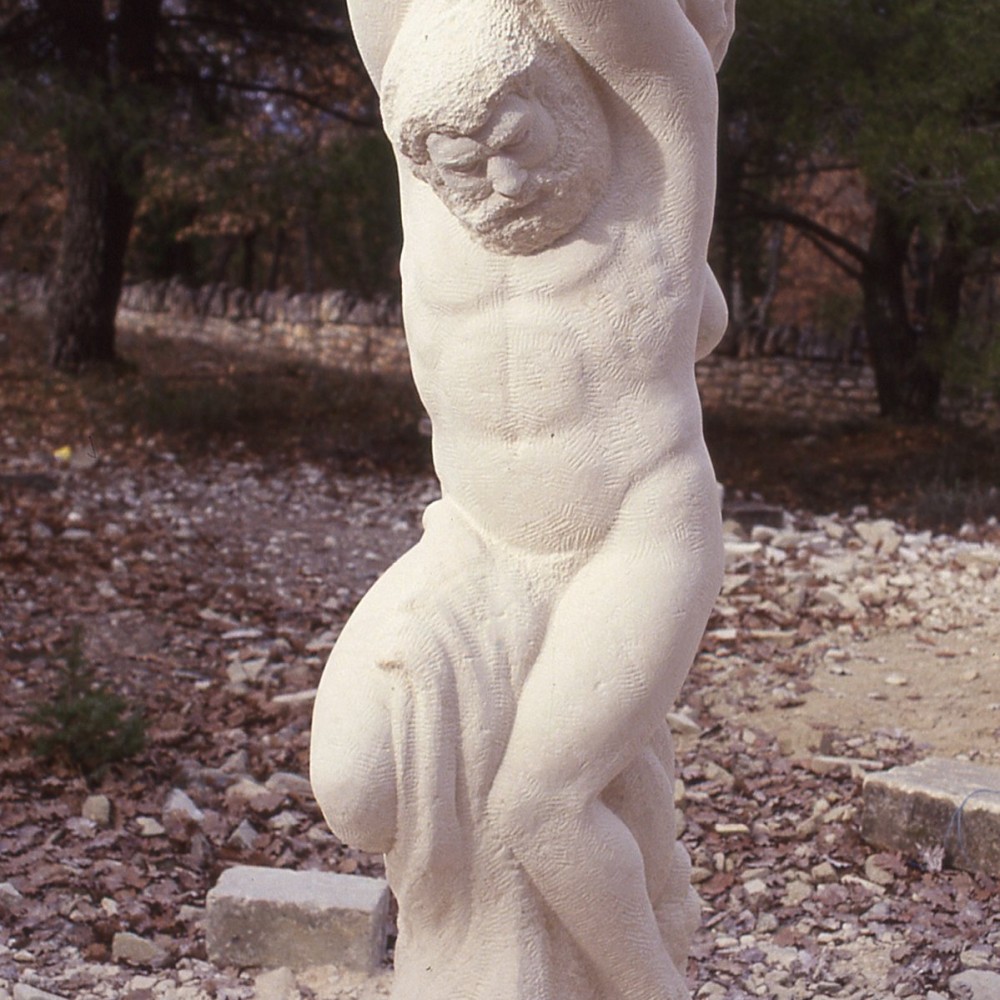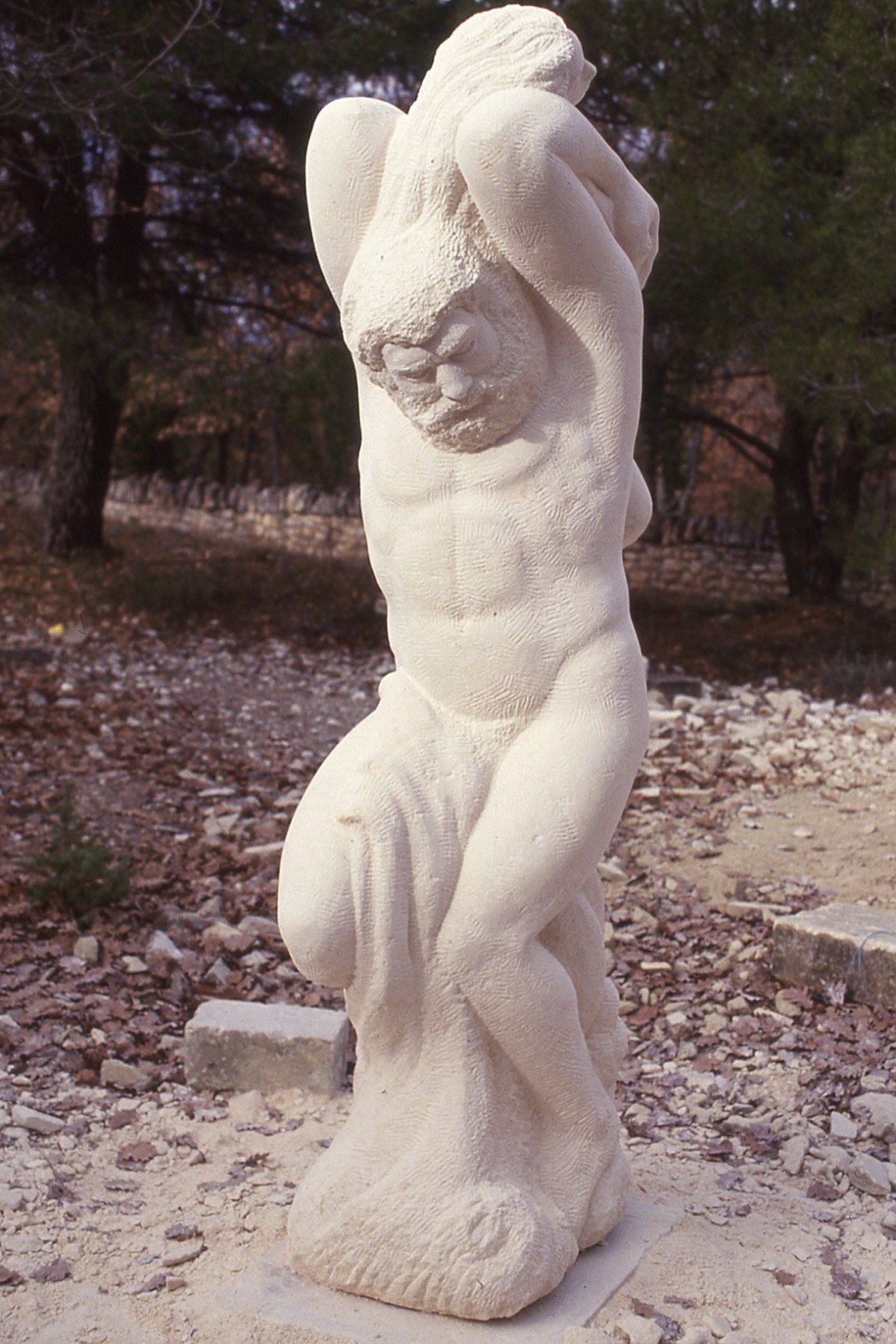In Provence, “la plaine de la Crau“ is an area close to Saintes Maries de la Mer, and is the dessicated paleolithic delta formed by the confluence of the Durance and Rhone rivers. It is to this day a unique landscape, covered with stones “polished” to roundness and left behind by the rivers.
When the Greeks came to Provence, several writers put forth theories of how this huge triangular plain came to be covered with stones. Aeschylus decided that it was unexplainable and so created the legend that Hercules is responsible. During one of his battles, Hercules invoked help from Jupiter, who sent down of shower of these stones to vanquish Hercules’ opponents.
The discovery of the Provencal penchant to keep such alternative versions of the myths and legends alive encouraged my own re-thinking of them.
I imagined Hercules as perhaps not having performed just twelve labors, his penance for killing his family in his madness induced by the queen of the gods. Hera was jealous because Hercules was the son of a human woman and her godly husband Zeus. I considered the demi-god status of Hercules as an acknowledgement of the partnership of human and divine. And perhaps, as a prequel or a sequel to his famed twelved labors, Hercule had been assigned this celestial labor: to take Gaia, or Earth, up to her position in the heavens. Earth, not Mount Olympus home of the gods, was where he was to become one of the greatest heroes by achieving redemption for his sins. I think redemption is one of, if not the, most important aspect of human life, without which there is only madness, and assigning this new labor to Hercules is a kind of homage to that.
Hercule (the French version of his name) is shown climbing through the heavens carrying Gaia upon his back. She is still small, yet fully formed, at once about to slide off him back into the soup of the creation of the universe, yet held securely enough to be taken to her position where she shall awake. But that will occur only once they reach her rightful place in the skies. Hercule is not young, but still physically strong. His beard crushes into his chest and his gaze is nonspecific, lost in his concentration on movement, finding secure footholds, or perhaps in some appreciation of the wonders of the skies – perhaps he knows their destination but there are no signposts, there is only endurance.

